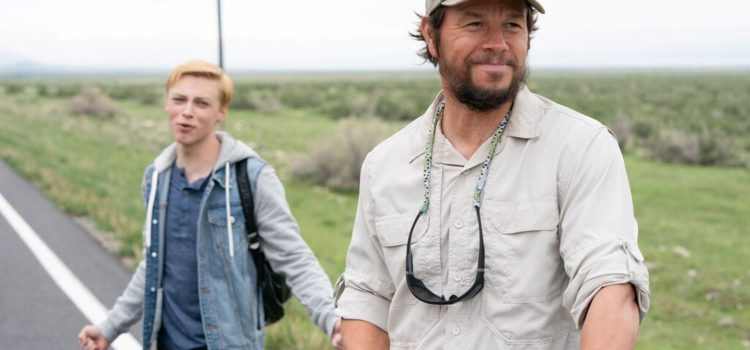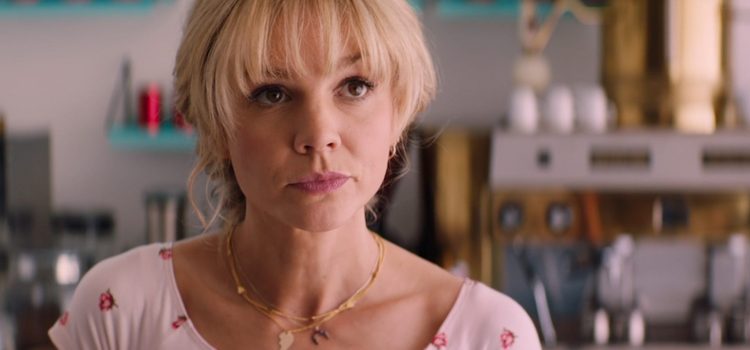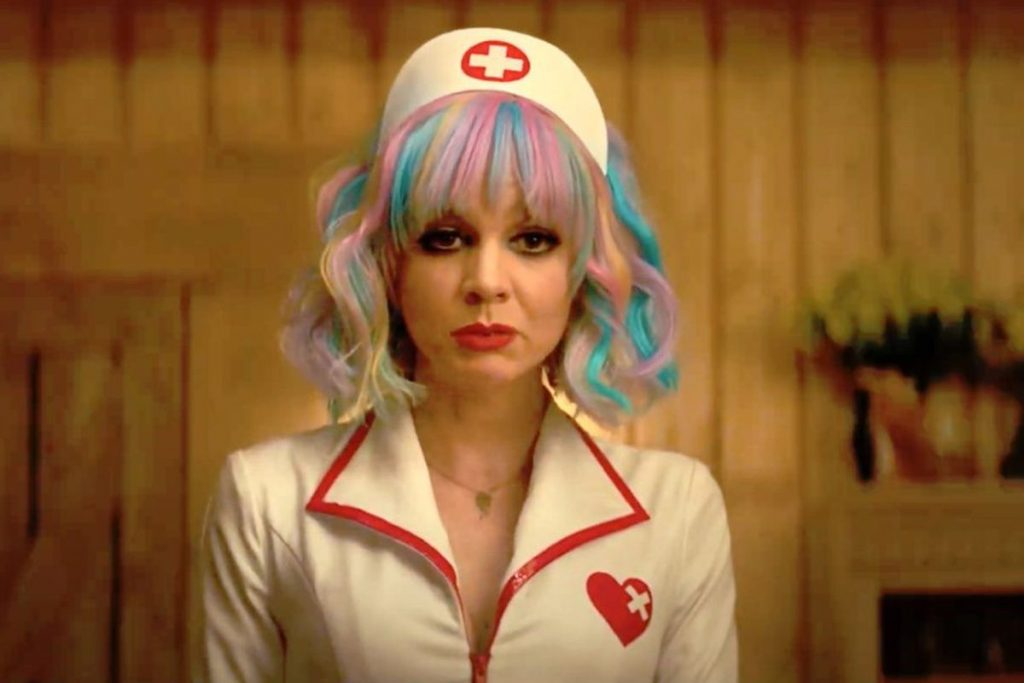By Lynn Venhaus
While it is tempting to learn more about the true story that made national news in 2013, hold off on any online searches until after watching “Joe Bell.” It will be a more satisfying experience the less you know about one father’s redemptive journey.
“Joe Bell” is the true story of a working-class father (Mark Wahlberg) who embarks on a solo walk across the U.S. to crusade about bullying after his gay son Jadin (Reid Miller) is tormented in their small town of LaGrande, Ore.
Wahlberg plays a gruff father who is loving but not necessarily understanding. He attempts to be more compassionate, revealing his pain and regrets.
And his ‘a-ha moment’ rings true. When he speaks about tolerance and accountability, his heart ultimately emerges. While a deeply flawed man, Bell’s mission is to help other parents by sharing his story, and possibly make things easier for kids living in places that might not be so accepting. He tells people “Understanding begins at home.”
Bell reflects on what he’s gone through and how he arrived at this point as he walks the highways and byways.
“Everybody’s against bullying, aren’t they?” he asks his wife.
In a sit-up-and-take note breakthrough performance, newcomer Reid Miller delivers a heart-wrenching portrait as Jadin Bell, a gay teen trying to live his life out loud without the harassment about “being different.”
A persecuted outsider who feels alone, his truths are universal, which is why the movie has such an emotional wallop. Miller will move you to tears — unless you have a heart of stone.
The thoughtful script, by Oscar winners Diana Ossana and Larry McMurtry, who adapted “Brokeback Mountain,” is sensitive about the family dynamics and the closed-minded attitudes of a small town. It’s McMurtry’s last film, as he died earlier this year. The celebrated author wrote “The Last Picture Show,” “Terms of Endearment” and “Lonesome Dove.”
The screenwriters employ copious use of flashbacks to set up what vicious actions Jadin endured by cruel classmates, how his scruffy dad got to this juncture in his life, and what being an activist is teaching him.
They propel the movie forward without the usual sentimental beats, relying on the moving story to present itself.
Connie Britton is Joe’s wife Lola, who has her own issues, and is frustrated by Joe’s quick temper and rush to judgment. Their complicated relationship unfolds while he is on his cross-country trek, staying in cheap motels and sleeping in a tent along the way.
Maxwell Jenkins plays Jadin’s younger brother, Joseph, who is having a tough time as well.
The movie, originally called “Good Joe Bell” when it premiered at the Toronto Film Festival in 2020, is just simply called “Joe Bell” now, no need to embellish. Its blunt message is the same.
Reinaldo Marcus Green directs with empathy. His past work includes “Monsters and Men” in 2018 and he will be coming out later this year with “King Richard,” starring Will Smith as the father of Venus and Serena Williams.
It is also an economical film, told in 90 minutes. Cinematographer Jacques Jouffret beautifully captures the panoramic vistas of America along Joe’s sojourn.
In a small but pivotal role, Gary Sinise plays a kindly sheriff who is also the father of a gay son. They bond over their initial resistance, and how they grew because of their experience.
The music is particularly mournful, composed by Brazilian Antonio Pinto. Brandi Carlile’s “The Joke” aptly plays over the closing credits.
While there have been great strides in the past decade about LGBQT rights, humans still have a way to go, filmmakers point out. Jadin’s essay on people hating you for reasons you can’t change is a poignant plea for awareness.
Ignorance and immaturity will continue to be roadblocks but listening and learning will go a long way – that’s the message of “Joe Bell,” which comes across in a simple and straight-forward manner.

The gut punch is tailor-made for helping to create a kinder, gentler world. This is an important, if imperfect film, that sheds light on hard-earned truths.
“Joe Bell” is a 2020 true-life drama starring Mark Wahlberg, Reid Miller, Connie Britton and Gary Sinise. Rated R for language including offensive slurs, some disturbing material, and teen partying and runtime is 1 hour, 30 minutes. It is available in theaters on July 23.
Lynn’s Grade: B+

Lynn (Zipfel) Venhaus has had a continuous byline in St. Louis metro region publications since 1978. She writes features and news for Belleville News-Democrat and contributes to St. Louis magazine and other publications.
She is a Rotten Tomatoes-approved film critic, currently reviews films for Webster-Kirkwood Times and KTRS Radio, covers entertainment for PopLifeSTL.com and co-hosts podcast PopLifeSTL.com…Presents.
She is a member of Critics Choice Association, where she serves on the women’s and marketing committees; Alliance of Women Film Journalists; and on the board of the St. Louis Film Critics Association. She is a founding and board member of the St. Louis Theater Circle.
She is retired from teaching journalism/media as an adjunct college instructor.



